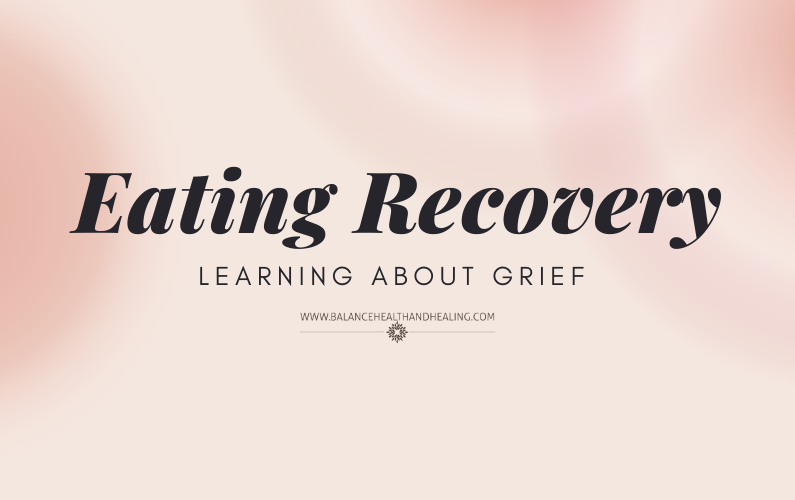Have you ever heard of the term disenfranchised grief? Disenfranchised grief is the act of grieving something that is not socially acceptable. This applies to the loss of relationships, jobs, dreams, or even an idea. The quote, “It’s okay to grieve the life that you thought you would live,” stands out to me as I have worked with many individuals who grieve aspects of their life before eating concerns were present. Grief symptoms can be heavy, surprising, and potentially isolating at times. However, knowing the grief process can bring awareness and normalcy through the course.
The Kubler-Ross Grief Cycle consists of five stages: denial, anger, bargaining, depression, and acceptance. Although many people experience all five stages as they process through their grief, there is no specific route to take in effort to grieve the “right” way. I often refer to the grief process as a rollercoaster ride, full of sharp turns, unexpected loops, and seemingly ongoing without end. With awareness of how disenfranchised grief can impact recovery, we can choose to honor the process, and disempower the symptoms that continually show up.
As you navigate recovery, you may grieve life before feeling as if your relationships revolved around recovery needs, how it felt to connect with friends when food was present, the ability to engage in meals without feeling overwhelmed with anxiety, or what it felt like to be comfortable in your body without always identifying ways that you wish it could be altered. It is essential to allow yourself time and space to grieve and seek support from family, friends, or a therapist. Over time, as you come to terms with the changes, you can begin to adapt to your new circumstances and find meaning and purpose in your current life.

